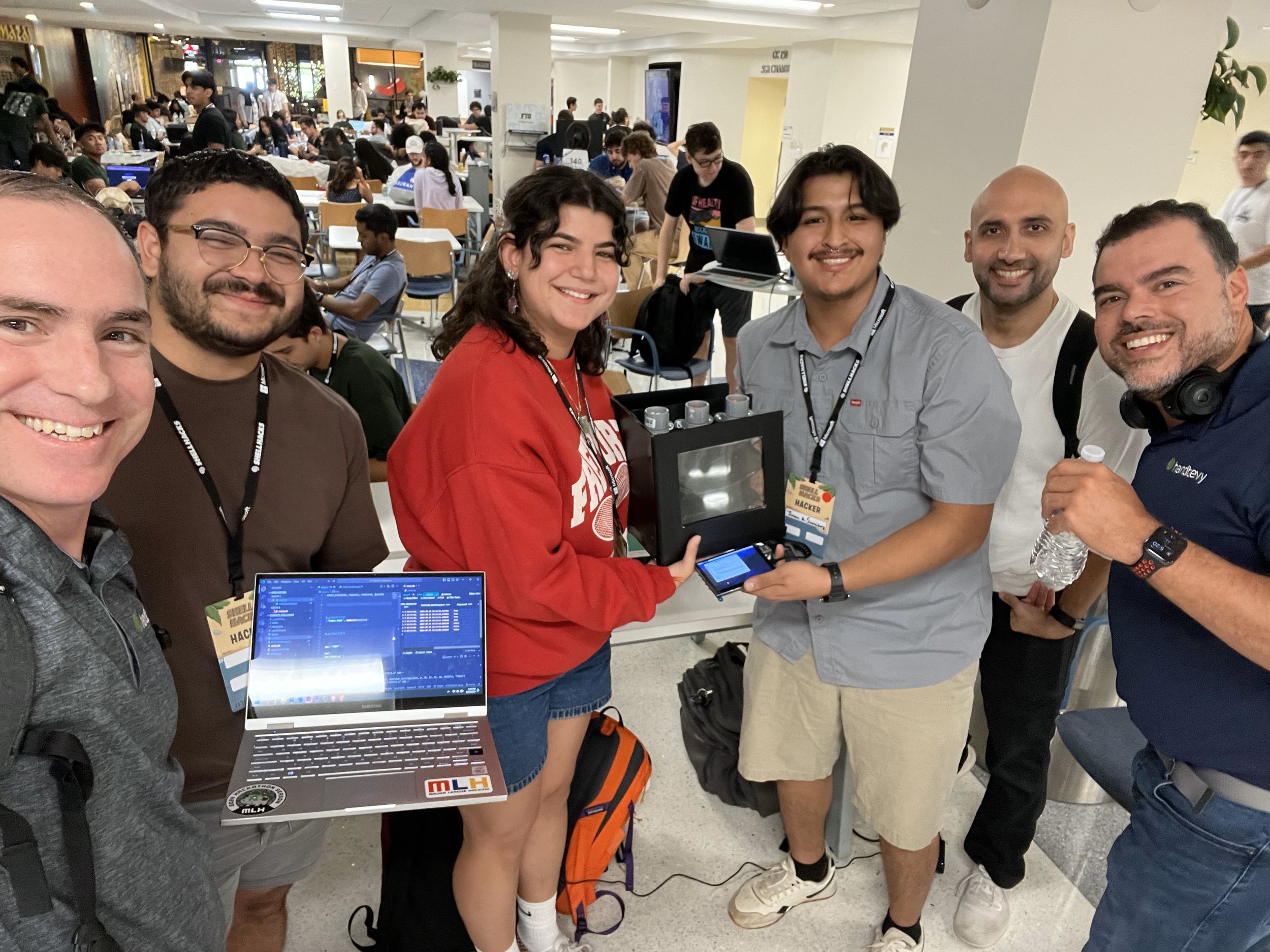ShellHacks
Winning team members from Medicine Dispensary, along with event volunteers (left to right): Orelvis Vasquez, Jorge Ortega, Meliza Napoles, Juan Sanchez, Bassam Zahid and Steve Gil (photo provided by Florida International University)
1,400 college students from around the world participated in ShellHacks 2024, hosted by Florida International University (FIU), which took place on September 25-27. A unique aspect of the competition was that it highlighted representation of underrepresented groups in technology. For instance, 75% of the participating students are a minority in technology, and 60% of the participants identified as Hispanic/Latino. INIT is “one of Miami’s largest organizations that aims to empower underserved communities and students to launch successful careers in tech.” The President of their chapter at FIU, David Ulloa, said “working with Patient Safety Technology Challenge was absolutely great. They inspired students to make some of the most competitive projects in the hackathon and really pushed attention for the issue of patient safety.”
Peter Antevy, a volunteer workshop facilitator recruited by PRHI to help at ShellHacks, reflected on the competition and expressed his excitement for next year’s competition, as this year’s hackathon was “an absolutely superb event that my team and I were thrilled to participate in.” He not only volunteered his own time, but brought several of his company’s leaders from Handtevy to also support ShellHacks. He was impressed with the talent demonstrated by participants and said, “their passion towards patient safety was palpable.”
Medicine Dispensary won the Patient Safety Technology Competition award, Sony MX4 Headphones, for their tech-enabled patient safety innovation. The team was inspired to design a project that would “assist patients with disabilities and others who may struggle to manage their medications independently.”
Meliza Napoles, a Medicine Dispensary team member, noted her inspiration came from her own experience, seeing a family member of hers trying to remember whether she had taken her medication. “It's hard to see her feel uncertain over something as fundamental as managing her health,” Napoles pointed out. She wants her family members and others to “feel secure and know [they] can manage medications without worry. It's motivated me to find a solution that can provide the support they need to manage their medications more effectively.” Based on their goal, the Medicine Dispensary team “developed a solution that seamlessly integrated both functional software and physical components” using stepper motors to “ensure the precise dispensing of one pill at a time,” as well as “a robust backend featuring a custom API developed with Python’s Flask framework.” This API supports the accurate tracking of medications dispensed and ensures they are dispensed at the appropriate time. With a compact design that draws from gravity-based systems, the bot is easy to use and conveniently drops pills down into the user cup, ensuring reliable medication dispensing.
Juan Sanchez, another team member, outlined future plans for Medicine Dispensary, saying the team looks forward to enhancing their product “by developing a more refined version of the Medicine Dispensary Bot.” The team’s plans involve integrating a “user-friendly interface to improve usability, expand the number of dispensers, and establish a direct link to caregivers for continuous monitoring of patients.” The goal of these enhancements is to further optimize medication management and improve patient safety.
For more on ShellHacks, click here

